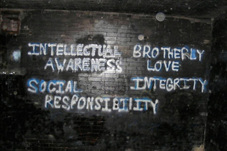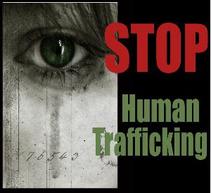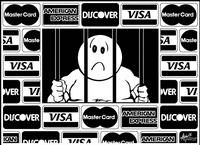 We have become a society that feeds on social media. When used properly social media does a very good job of doing what it's supposed to, providing the mechanism for us to be socially aware. The Marketplace, like many other organizations, rely on various social media outlets as part of their mission. Social awareness is what you know, social responsibility is what you do. I fear that we're becoming more socially aware and less socially responsible. Have we been lulled into believing that we're socially responsible when we share a facebook post or when we sign an online petition? Don't get me wrong, these things do have impact, but is that being socially responsible or merely taking action? Social responsibility is defined as an ethical ideology or theory that an entity, be it an organization or individual, has an obligation to act to benefit society at large. Social responsibility is a duty every individual or organization has to perform so as to maintain a balance between the economy and the ecosystem. This responsibility can be passive, by avoiding engaging in socially harmful acts, or active, by performing activities that directly advance social goals.  We're doing the happy dance at the Marketplace. We are officially the Marketplace for Social Awareness and Social Responsibility Inc. We are incorporated in the State of New York and recognized as a 501(c)(3) non-profit organization. This milestone allows us to accept donations that are tax-exempt to the full extent allowed under U.S. law. We can now begin to move forward with our social responsibility initiatives. The Marketplace is a small organization with big ideas. We are committed to our mission of:
 It has been six months since the launching of the Marketplace for Social Awareness and Social Responsibility. As with any new endeavor, there were lessons to be learned and obstacles to overcome. I'm proud to say that we're still here and we're here to stay. We could not have done it without the support of our readers. On behalf of the Marketplace I thank you. Our stated purpose is to promote and support programs, initiatives, and events that address the needs of African-Americans youth. Our vision is to leverage social media to promote social awareness and social responsibility. We believe that we can create a place where information can be shared, issues discussed, and programs promoted. Sounds good but what does this really mean?  Human sex trafficking is the most common form of modern-day slavery. As reported by Think Progress "The ugly truth is that it is less risky and more profitable to sell a girl than crack cocaine or meth. The U.S. government spends 300 times more money each year to fight drug trafficking than it does to fight human trafficking." The FBI reports that the terms human trafficking and sex slavery usually conjure up images of young girls beaten and abused in faraway places, like Eastern Europe, Asia, or Africa. Actually, human sex trafficking and sex slavery happen locally in cities and towns, both large and small, throughout the United States, right in citizens' backyards. The majority of these children being sold for sex are girls between the ages of 12 and 14. How can we as a society allow this to happen? How can we not make this one of our highest priorities as a nation? This is not a political issue, this is a human issue. The lives of many young women are at stake. Why isn't this getting the attention it deserves?  Today’s economic climate has created an opportunity for the “business savvy” to make money by preying on the poor. “Pay Lenders”, businesses that loan individual monies using their paycheck as collateral, are on the rise. These businesses charge high interest rates. In my opinion this is no more than a legalized version of loan sharking. The difference of course is that if you cannot pay you don’t have to worry about getting any bones broken, but you can possibly end up in jail. Our courts have felt the effect of budget cuts. As such they have become more focused on generating revenue in addition to their responsibilities as civil servants. Since the recession began, courts have increasingly had to fend for themselves by imposing fees on criminal defendants to address budget gaps. In Cambria County, Pa., for example, the Court of Common Pleas imposed 26 fees on a woman convicted of a drug crime, including $8 each for postage and judicial computers. In one State a $35 parking ticket ended up being $235 once all the fees were added. According to an article in the Huffington Post, incarcerating people for not paying fees that they can't afford isn't generating any government revenue -- it's just creating more government spending. For example, Rhode Island sent Ricardo Graham to prison for 40 days at a cost to the state of $4,000 because he couldn't pay $745. |
EditorErnest R. Heyward is the Founder and President of the Marketplace for Social Awareness and Social Responsibility Inc. Categories
All
Archives
June 2020
|
MARKETPLACE FOR SOCIAL AWARENESS AND SOCIAL RESPONSIBILITY INC.



